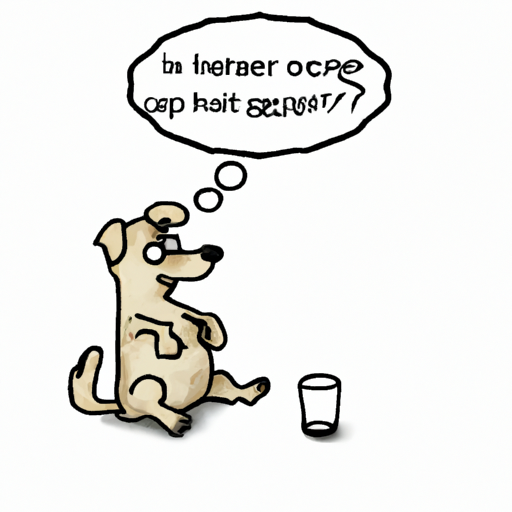As a dog owner, you’ve probably found yourself puzzled and maybe even slightly amused when your furry friend starts hiccupping. Yes, dogs can get hiccups just like humans. Although it’s not a cause for alarm, understanding what causes hiccups in dogs can help you better care for your pet.
Table of Contents
- Understanding Dog Hiccups
- Common Causes of Dog Hiccups
- How to Help Your Dog Stop Hiccupping
- When to Seek Veterinary Help
- Frequently Asked Questions
Key Takeaways
- Dogs get hiccups due to spasms in the diaphragm.
- Common causes include excitement, stress, eating too quickly, and temperature changes.
- Home remedies can help alleviate hiccups in dogs.
- Persistent hiccups may indicate a more serious health issue.
Understanding Dog Hiccups
Hiccups in dogs are caused by involuntary contractions (spasms) of the diaphragm. This is the muscle that separates the chest from the abdomen and plays a vital role in breathing. When the diaphragm contracts suddenly, your dog takes in a quick breath. The rapid incoming air is stopped by the vocal cords, resulting in a hiccup sound.
This physiological process is similar to the one that occurs in humans. Although it might seem a bit unusual, it’s a fairly common occurrence, especially in puppies. According to VCA Hospitals, hiccups are more common in puppies because of their high energy levels and habits of eating and drinking quickly.
Common Causes of Dog Hiccups
There are several factors that can trigger hiccups in dogs. Here’s a closer look at some of the most common causes:
-
Excitement or Stress: Just like in humans, emotional states such as excitement or stress can trigger hiccups in dogs. If your dog gets too worked up or anxious, they might start hiccupping.
-
Eating and Drinking Too Quickly: When your dog eats or drinks too fast, they swallow air along with their food or water. This excess air can cause the diaphragm to spasm, leading to hiccups.
-
Temperature Changes: If your dog moves from a warm environment to a colder one, the sudden change in temperature can trigger hiccups. This is why some dogs may hiccup after drinking cold water on a hot day.
-
Certain Foods: Some types of food can cause hiccups in dogs, especially those that cause gas or bloating. You can learn more about this on One Top Dog.
How to Help Your Dog Stop Hiccupping
If your dog has the hiccups, there are several home remedies you can try:
- Give your dog a small snack or meal. This can help reset the diaphragm.
- Encourage your dog to drink some water. This can help alleviate the spasms.
- Let your dog rest. Sometimes, all it takes for the hiccups to go away is a bit of relaxation.
Remember, dog hiccups are usually harmless and go away on their own. However, if you notice that your dog’s hiccups are persistent or causing discomfort, it may be time to consult a vet.
When to Seek Veterinary Help
While most cases of dog hiccups are harmless, prolonged hiccupping can be a sign of a more serious health problem. Conditions such as asthma, pneumonia, or pericarditis can cause persistent hiccups in dogs. If your dog’s hiccups last more than a few hours or are accompanied by other symptoms, such as coughing, wheezing, or difficulty breathing, consult your veterinarian immediately.
For more information on when to seek veterinary help, check out this helpful article on One Top Dog.
Frequently Asked Questions
Q: Are hiccups in dogs dangerous?
A: No, hiccups in dogs are usually not dangerous. However, if the hiccups are persistent or causing distress, it’s best to consult a vet.
Q: Can certain breeds of dogs get hiccups more than others?
A: No, hiccups can occur in dogs of any breed. However, they are more common in puppies.
Q: How can I prevent my dog from getting hiccups?
A: You can reduce the chances of your dog getting hiccups by ensuring they eat and drink slowly, keeping them calm and relaxed, and avoiding sudden temperature changes.
In summary, dog hiccups are a common occurrence and are usually not a cause for concern. However, understanding what causes them and how to alleviate them can help you better care for your pet. For more tips on caring for your dog, check out One Top Dog.



